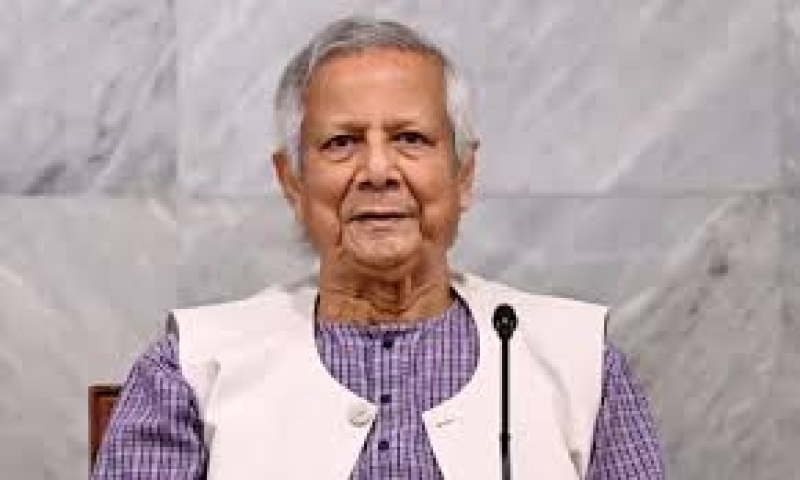- Khaleda now not fit for travelling: Medical Board |
- Panchagarh records lowest temperature 10.5°C so far this year |
- Christmas returns to Bethlehem after two years of Gaza war |
- কলাপাড়া মুক্ত দিবসে এবার সাড়া নেই কার |
- One killed, two injured in attack at Ctg meeting over marriage |
Govt to unveil decision on ‘July Charter’ today

The government is set to move forward with the “July National Charter 2025” on its own, after political parties failed to submit formal proposals or reach a consensus on its implementation. Despite last-minute mediation attempts to bridge the divide between the BNP and Jamaat-e-Islami, the interim administration has decided to proceed unilaterally.
The matter tops the agenda of the Advisory Council meeting of the interim government, scheduled for Thursday morning under the leadership of Chief Adviser Dr. Muhammad Yunus. Following the meeting, Dr. Yunus will address the nation at noon to announce the government’s final decision on the long-debated reform charter.
Political sources said the BNP, Jamaat, and NCP, along with their allies, remain deeply split over key provisions—including the charter order, the timing of the national referendum, the formation of an upper house under proportional representation (PR), and the note of dissent mechanism. With the negotiation deadline now expired, the government has chosen to finalize and implement the plan independently.
According to official sources, the Advisory Council will today finalize the “National July Charter 2025 Implementation Procedure”, a document detailing the roadmap for constitutional and institutional reforms. The six-point agenda includes approval of the Implementation Order-2025 and discussion of a referendum ordinance to ratify the reform package.
The government had granted political parties seven days from the 3 November meeting to reach common ground. That window closed without progress. On 11 November, Law Adviser Asif Nazrul hinted that a final decision was imminent—and officials now confirm that Dr. Yunus’s address will outline the government’s chosen course.
The speech will be broadcast live on BTV, BTV News, and BTV World. According to the Chief Adviser’s Press Wing, Dr. Yunus will present the implementation roadmap, address mounting political tensions, and brief the nation on accompanying economic, administrative, and electoral measures.
Government insiders say the Implementation Order is likely to be issued by 15 November, followed soon after by the referendum ordinance. The plan reportedly calls for holding the referendum and national election simultaneously in early February, consolidating decisions on the upper house formation and the note of dissent clause.
At a high-level meeting on Wednesday, Advisers Asif Nazrul, Wahiduddin Mahmud, Adilur Rahman Khan, Muhammad Fouzul Kabir Khan, and Syeda Rizwana Hasan reviewed the final draft. Sources said several adjustments were made to strike a balance between competing party positions.
The BNP has pushed for the referendum and election to be held on the same day and for a Constitution Reform Council empowered under the note of dissent principle, while Jamaat and the NCP have pressed for inclusion of an upper house based on proportional representation. The interim government is expected to merge both into a “compromise framework.”
The referendum will likely feature four key questions tied to 48 constitutional reform proposals in the July Charter. Of these, 30 broadly agreed-upon reforms will be grouped under a single “package question” for collective approval, while the remaining 18—covering sensitive issues such as the PR-based upper house, caretaker governance, and executive restructuring—will appear as separate ballot questions.
Drafted by the National Consensus Commission after consultations with 30 political parties, the July National Charter 2025 compiles 84 reform proposals from six reform commissions, 48 of which concern constitutional changes. Although at least 30 proposals faced dissent, the Commission excluded those from its final draft.
Originally, the Commission recommended a single implementation order and a unified referendum question:
“Do you approve the July National Charter (Constitutional Reform) Implementation Order and the reform proposals listed in its schedule?”
However, it left the timing and format of the referendum to government discretion—a prerogative Dr. Yunus’s administration now appears ready to exercise decisively.
Political analysts describe today’s developments as a turning point in Bangladesh’s reform process. While the government’s move may accelerate long-delayed constitutional changes, they warn that unilateral implementation—without broader political consensus—could deepen existing divisions across the political spectrum.

